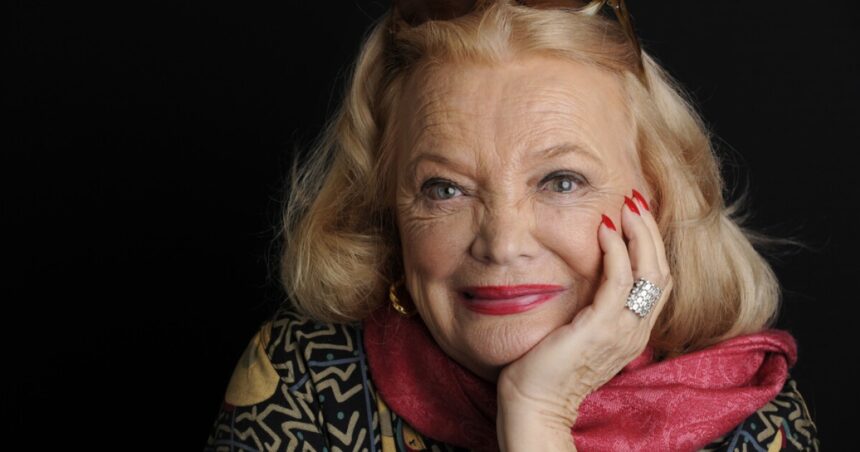According to filmmaker Nick Cassavetes, his mother, actor Gena Rowlands, has been diagnosed with Alzheimer’s disease. Cassavetes, who directed Rowlands in “The Notebook,” shared this news during a discussion marking the film’s 20th anniversary with Entertainment Weekly. In the romantic cult classic, Rowlands portrayed the older version of the lead character Allie, who is depicted as suffering from dementia. Cassavetes mentioned, “I got my mom to play older Allie, and we spent a lot of time talking about Alzheimer’s and wanting to be authentic with it. And now, for the last five years, she’s had Alzheimer’s. She’s in full dementia. And it’s so crazy — we lived it, she acted it, and now it’s on us.”
With a career spanning nearly seven decades in both screen and stage, Rowlands has accumulated a resume featuring over 100 film and TV credits, two Academy Award nominations, an Honorary Academy Award, four Emmy Awards, two Golden Globe Awards, and various other accolades. The 94-year-old actress is renowned for her collaborations with her husband, John Cassavetes, who is the father of their three children, including Nick.
Rowlands’ mother, Lady, was also directed by John in multiple films. In a 2004 interview with O magazine, Rowlands reflected on the difficulty she faced in deciding to portray Allie in “The Notebook” due to her mother’s health before her passing in 1999. She shared, “This last one — ‘The Notebook,’ based on the novel by Nicholas Sparks — was particularly hard because I play a character who has Alzheimer’s… It was a tough but wonderful movie.”
Alzheimer’s disease is a progressive brain disorder that leads to brain shrinkage and eventual cell death, as outlined by Mayo Clinic. It is the primary cause of dementia, manifesting in a gradual decline in memory, thinking abilities, social skills, and behavior, impacting an individual’s daily functioning.
The exact causes of Alzheimer’s remain unclear, but they are believed to involve a combination of age, genetics, environment, and lifestyle factors, according to the National Institute on Aging. While a family history of the disease does not guarantee its development, it does increase the likelihood. Additionally, while age itself does not cause Alzheimer’s, it is a significant known risk factor.
Statistics from Mayo Clinic indicate that approximately 6.5 million Americans aged 65 and older have Alzheimer’s disease, with an estimated 60% to 70% of the global dementia population thought to have Alzheimer’s out of around 55 million individuals.





